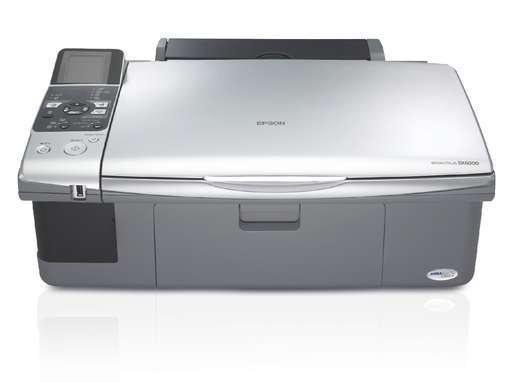TechRadar Verdict
This Epson printer has excellent print quality, but is slow
Pros
- +
Top quality photo printing
Cons
- -
Slow on bulk printing jobs
Why you can trust TechRadar
With the Epson Stylus DX6000 (£89 inc. VAT) you can't avoid the fact that Epson wants to sell you ink. When you print a job a progress box pops up showing the ink levels in the four cartridges. Naturally it showed that our new cartridges were brim-full of ink, but even so the orange 'Buy Epson ink' button was rather prominent.
As ever with Epson you get stacks of software. It's hard to separate the Canon and Epson in this respect, as they both supply comprehensive packages. Epson claims 27ppm for both colour and mono, but it was the slowest printer in the group, with 10 pages of text taking four minutes and 47 seconds to complete. Unusually, the first page was the quickest to drop, but even that was slow compared to opposition.
When it came to photo printing, the Epson was the top of its class, but intolerably slow. A borderless 6 x 4-inch image took three minutes and 38 seconds and a borderless A4 image took eight minutes and 39 seconds, which was slightly faster than the Brother, but slower than the other three.
In most respects, the DX6000 is very good, and the list of features is perfectly acceptable at this price point. So while you don't get a fax or LAN, you do get PictBridge, 1200 x 2400 scanning resolution and a 2-inch LCD screen. The quality of the printed output was excellent but the problem is the lack of speed, which will be a problem on long print runs.
Tech.co.uk was the former name of TechRadar.com. Its staff were at the forefront of the digital publishing revolution, and spearheaded the move to bring consumer technology journalism to its natural home – online. Many of the current TechRadar staff started life a Tech.co.uk staff writer, covering everything from the emerging smartphone market to the evolving market of personal computers. Think of it as the building blocks of the TechRadar you love today.
